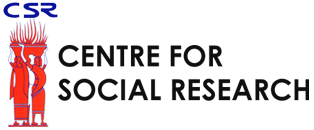1. Keep Private Information Professional and Limited
It is easy to start using social media and our digital devices as our diaries and ledgers, where we document our daily life and even save important and critical information. It is perhaps crucial to limit the information that we have uploaded online or secure it so it cannot be hacked.
2. Click with Caution
With the number of pornographic and scamming links available, we have to click anything with caution. Be extra vigilant before clicking on any payment links provided over email/message. There could be instances when an individual is not sure if the email is authentic, in such cases please hover your cursor over the payment link to confirm if the payment link gets redirected to a company initiated websites only. Phishing is a reality that we live in and with the advancement of photoshop and making fake documents look real, clicking arbitrarily can land us in trouble. This means never share your passwords, bank details or private information with anyone without due process.
3. Online Citizen
When we’re citizens of a country and take pride in being good and conscientious citizens, we should extend this to the online community and understand that we’re all a part of a greater community. Being safe, responsible and reporting when someone else is being bullied online are small steps that we can take to make sure the internet is a safe space for everyone.
4. Free WiFi Spots
Please refrain from using any publicly available charging points.Always carry your own powerbank. Juice jacking is a type of cyber attack involving a charging port that doubles as a data connection, typically over USB. This often involves either installing malware or surreptitiously copying sensitive data from a smartphone, tablet, or other computer device. Never connect your personal device with publicly available Wifi points. Multiple risks are involved when connected over public wifi.
5. Hate Comments
Because the internet to a large extent is anonymous and that can give courage to certain people to say hurtful things, we have to build resistance and use quick response tools like ignore/delete/report and block when it comes to someone being hateful online.
6. ATM’s
Please avoid withdrawing money from ATMs located in isolated locations which doesn’t have any Security personnel to safeguard it 24/7. Best practice would be to withdraw money from ATMs located next to banks.
7. Unity in Diversity
We have to understand that everyone has the same beliefs or views. But if the internet is a path of self-expression for you, then we should extend the same courtesy to all online citizens. Hurting someone on the basis of their affiliations, religious beliefs or identity is a criminal offence and therefore, we have to be careful of what we say.
8. Make a 30 second rule.
We’re all so quick with our gadgets and handles that we’ve adopted a habit of dealing with the repercussions and not prevention. Therefore, we need to implement the 30 second rule and actually observe what we want to share or post online for 30 seconds so we can be 100% sure.
9. Privacy Settings and Strong Passwords
Always use complex passwords and never use the same password for multiple accounts. You can now enable two-factor authentication as well to secure your online account. Before signing up to new social media platforms, it is advisable to check their security settings and implement a basic regime to save yourself from fake profiles and online trolls.
10. Filters and Widgets
Every major social media platform now has introduced age-appropriate filters, trigger warnings for dubious content as well as ignore/report/block buttons so we can respond to online harassment quickly and in detail.
11. Offer a Helping Hand
Bullying online and/or offline affects one’s mental and emotional well being. Hence, always offer a helping hand and be supportive and compassionate to your peers/kids.
